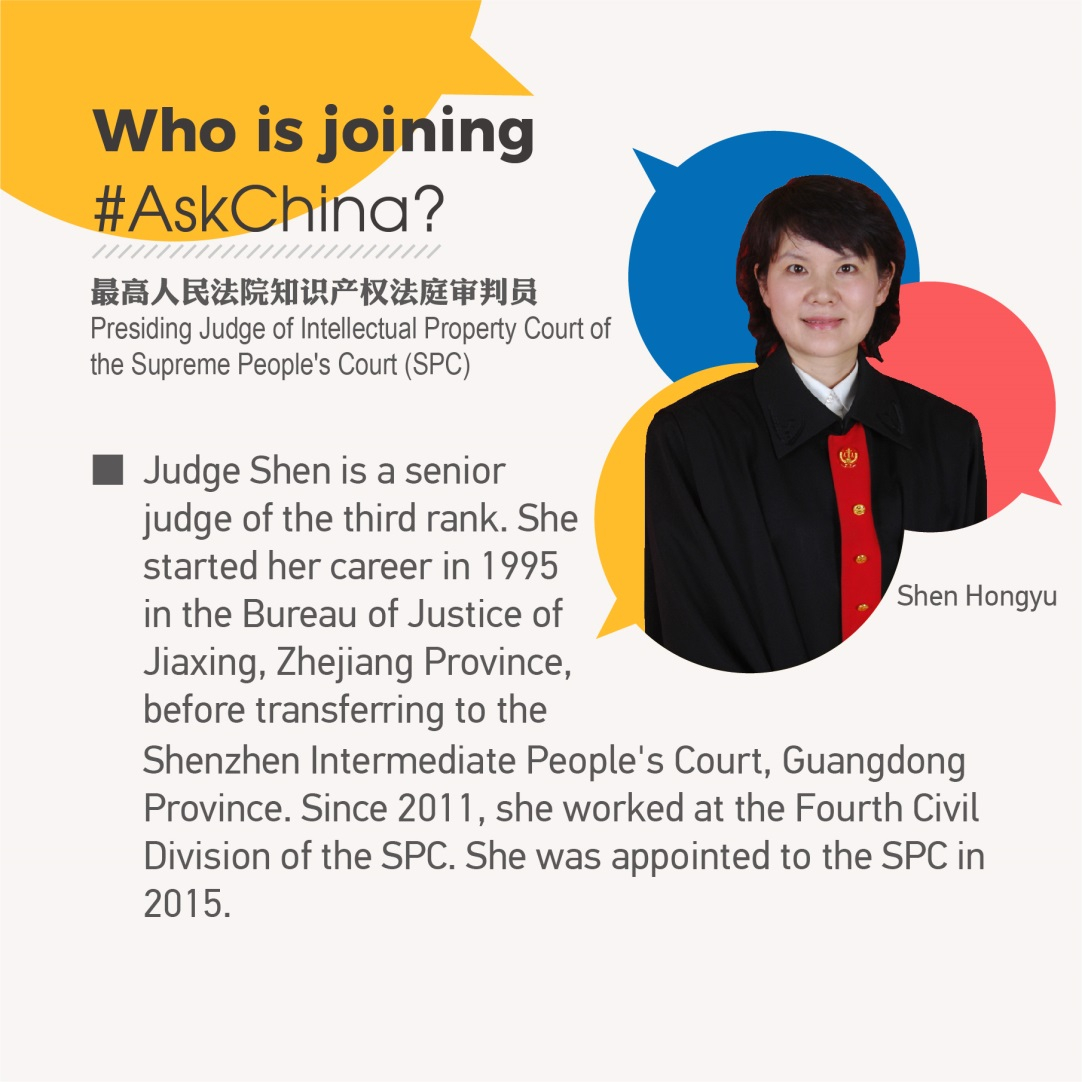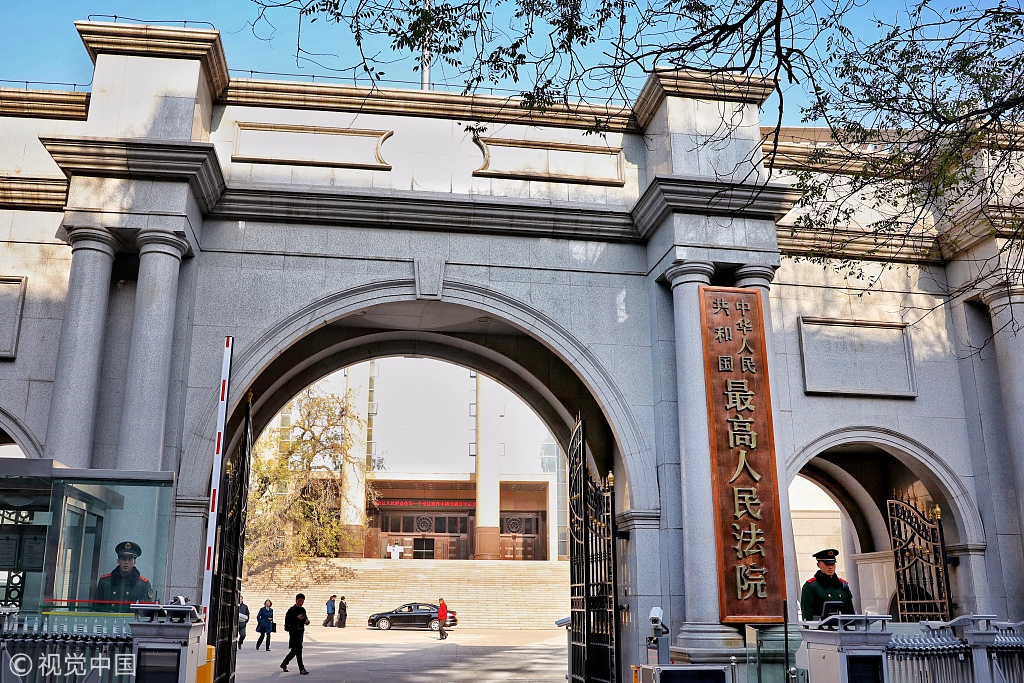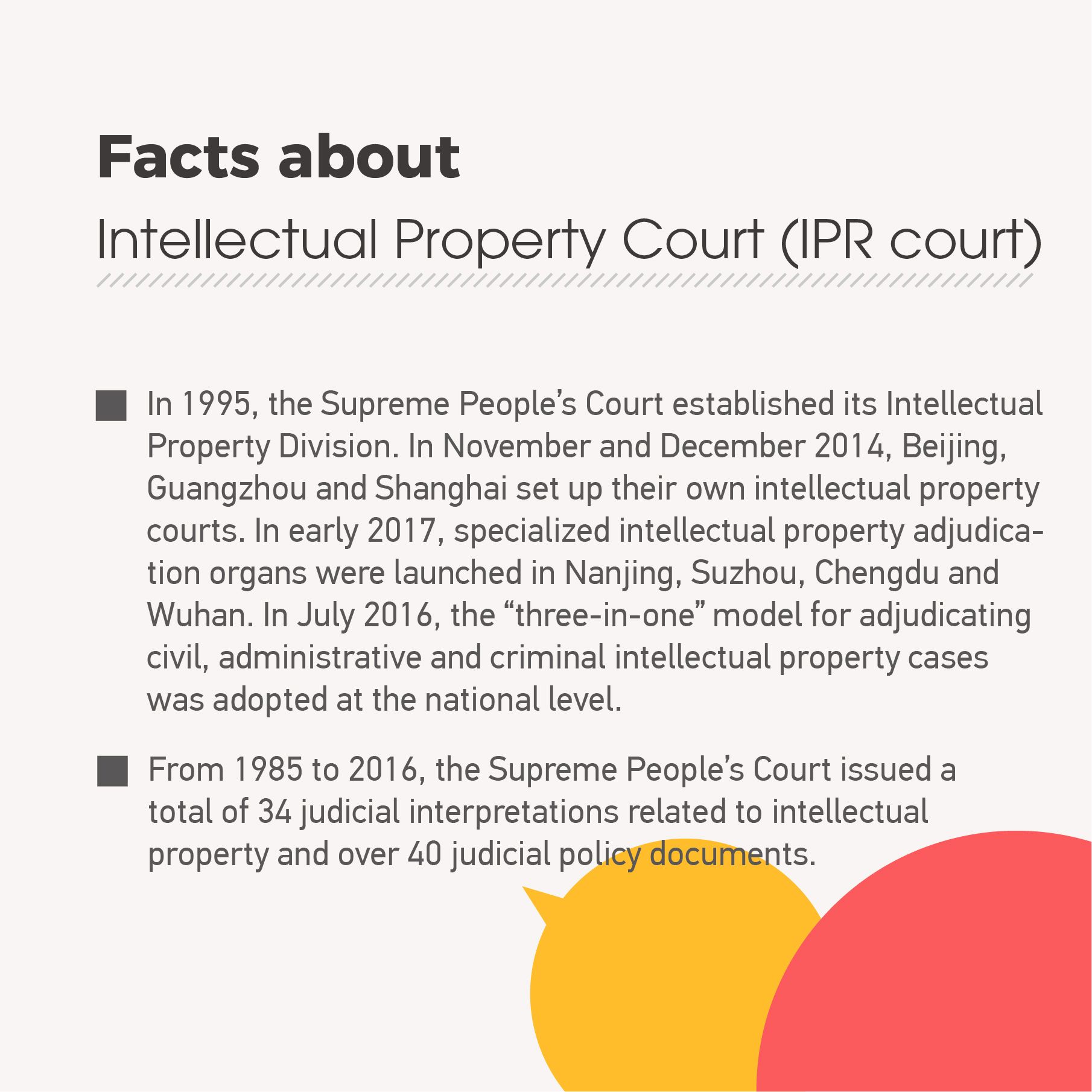
Domestic
12:20, 15-Mar-2019
Ask China: How does China protect IP rights for both Chinese and foreign companies?
Updated
14:47, 21-Mar-2019
CGTN
05:50

Why has China established an Intellectual Property Rights court (IPR court) under the Supreme People's Court (SPC)? Do Chinese courts respect and enforce intellectual property rights for foreign nationals and their patents?
These are some of the questions concerning China's intellectual property practices that netizens from around the world have asked CGTN.
In this episode of Ask China, a special series focusing on important subjects related to China, CGTN invited Shen Hongyu, presiding judge of the IPR court of the SPC, to shed light on intellectual property issues.

CGTN Photo
CGTN Photo
First of its kind in China
When explaining the need for an IPR court under the SPC, Shen spoke about how countries like Japan and the United States deal with patent-related cases.
"In Japan, all the patent appeal cases go to the Japan Higher Court. And in the United States, a patent case goes to the United States Court of Appeals for Federal Circuit," she said.
"But in China, it is the first ever court at the highest judicial level which can guarantee the unification of the IP law."

The entrance of the Supreme People's Court in Beijing, China, November 30, 2018. /VCG Photo
The entrance of the Supreme People's Court in Beijing, China, November 30, 2018. /VCG Photo
Judge Shen also noted that the establishment of the IPR court under the SPC expresses China's determination to ensure a sound business environment.
Chinese courts adhere to principle of equal protection
In response to a question by Richard Smith from Quora: “Do Chinese courts respect and enforce intellectual property rights (IPR) for foreign nationals and their patents?” Shen stated that Chinese courts adhere to the principle of equal protection, in regards to IPR issues.
"We have what is called the pre-establishment national treatment for foreign companies, business organizations, and individuals. In our general provision of civil law and our civil procedure law, the principle is well stated in law and in judicial practice. The court applies the law principle in these cases," said Shen.

CGTN Photo
CGTN Photo
"Last year, more than 20 percent of the intellectual property cases accepted by Beijing Intellectual Property Court were related to foreigners. In some cases, both parties were foreign entities. So the numbers prove that the Chinese intellectual property protection environment is sound and good, otherwise, the numbers would not have been so big," added Shen.
Boosting tech innovation
Shen further explained what the SPC and IPR courts are planning to do in order to make the business environment more equitable for Chinese and foreign enterprises.
"In addition to what I said (about) improving the transparency, unifying judicial standards and enhancing efficiency, our mission is to build the intellectual property court to help boost technological innovation. The IPR is the primary litigation destination for intellectual property protection and is the leading court of patent trials and a testing field of the judicial reform. So, I believe both the Chinese and foreign companies will benefit from the higher level intellectual property protection offered by our new court," Shen said.
The SPC launched its IPR court in Beijing earlier this year. The move aims to improve the protection of IPR in patent disputes and support innovation.

SITEMAP
Copyright © 2018 CGTN. Beijing ICP prepared NO.16065310-3
Copyright © 2018 CGTN. Beijing ICP prepared NO.16065310-3